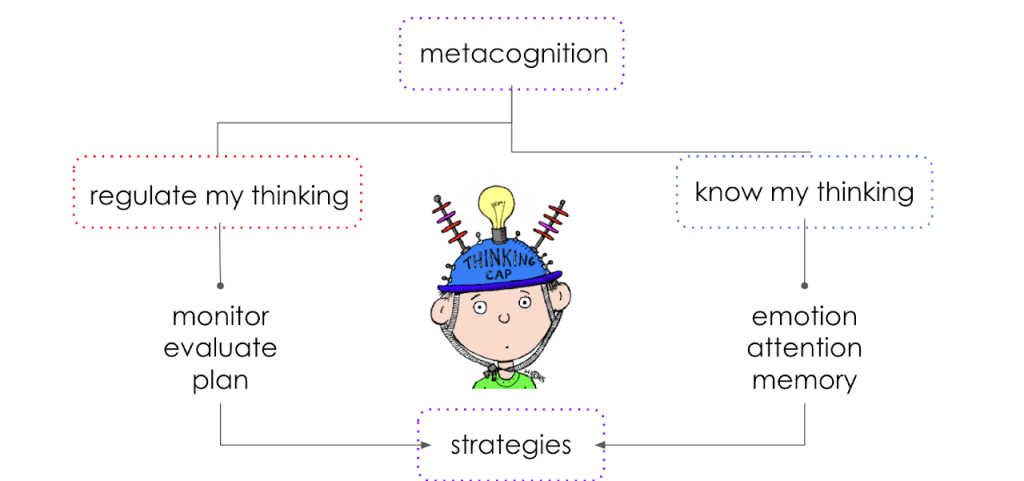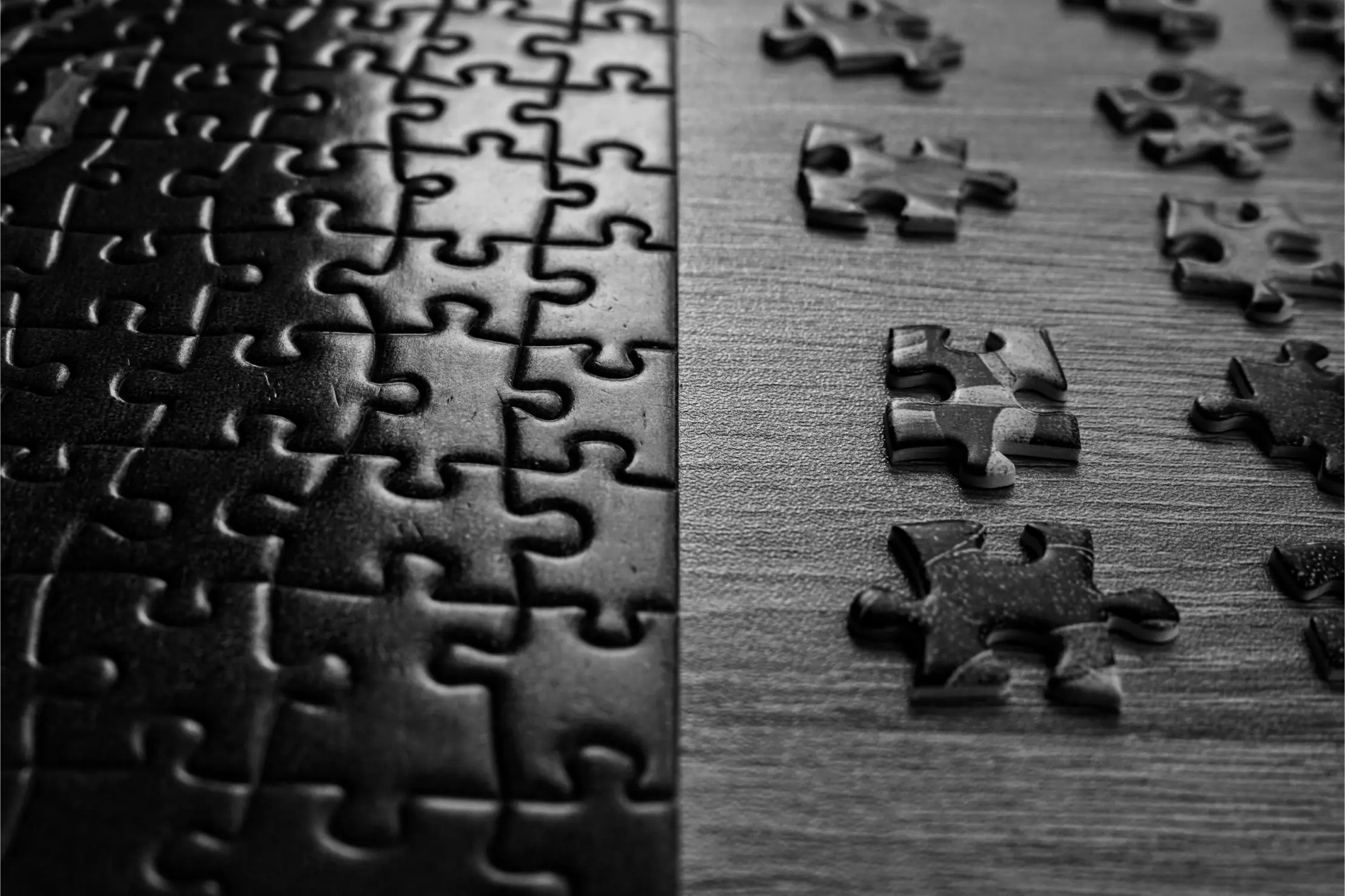More on Metacognition
In basic terms, metacognition is when learners think about their thinking. Said another way, it is a person’s ability to self-critique how they approach a task. In response to this self-evaluation, learners modify their behavior to improve how they wrestle with a similar task in the future. There are two types of metacognition. The first involves a person’s mind regulating what it is thinking. The second type refers to the learner’s mind knowing what it is thinking. Both involve the development of strategies to effectively adapt to challenges in the future. In short, metacognitive knowledge is the knowledge people have about themselves as learners and how they learn best. Researchers have flagged metacognitive knowledge as one of the most effective ways to improve student performance, for it involves students taking charge of their own learning.

Regulate My Thinking
A facet of metacognition is regulating or taking charge of one’s thinking when confronting a task. Research indicates that successful learners plan the completion of a task. This involves setting goals and organizing the steps, materials, and time required to complete a task. Successful learners also monitor their progress of a task and make the necessary adjustments to stay on course. Finally, successful learners evaluate or appraise their effectiveness at performing a task in order to make them more successful in the future. Upon reflection, learners can refine and improve how successful they are at regulating their thinking.

Know My Thinking
Another facet of metacognition is being aware of, or knowing, what one’s mind is thinking. Research shows that successful learners know themselves and are aware of their emotions. They know how they are feeling when working on a task. Moreover, they are aware of their attention and what their mind should be focused on during a task. Next, successful learners are aware of the task. They know what the task entails and what is expected for the successful completion of the task. Finally, successful learners recall knowledge of past experiences and skills to more efficiently complete a current but related challenge.

